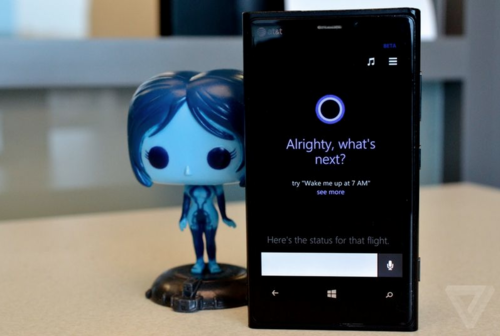#MICROSOFT'S CORTANA #COMING TO iOS AND ANDROID
Microsoft's Cortana Is Coming to iOS and Android

Microsoft
is planning to bring its Cortana digital assistant to iOS and Android
as a standalone app. While the software maker has previously confirmed Cortana would come to additional operating systems, Reuters reports
that the standalone app will be available on phones and tablets running
iOS and Android. Microsoft is currently building Cortana into Windows
10, which is set to debut later this year, and it’s likely that the
digital assistant will make its way on to Android and iOS alongside its
PC expansion.
In an interview with Reuters,
Microsoft’s Eric Horvitz, managing director of Microsoft Research,
reveals that the company is planning a bigger roll out of Cortana later
this year. “This kind of technology, which can read and understand
email, will play a central role in the next roll out of Cortana, which
we are working on now for the fall time frame,” says Horvitz. Microsoft
is currently developing a more advanced version of Cortana, codenamed
project Einstein, that pulls data from artificial intelligence. While
there’s not many details on Einstein from Reuters’ report, it appears to be an effort to improve the awareness of Cortana and its ability to automate even more tasks.
Microsoft’s
move to bring Cortana to iOS and Android won’t surprise many. The
software maker has consistently shown that it’s willing to bring its
best Windows features to rival platforms in an overall effort to improve
its services and apps. While Cortana is a standout feature for Windows
Phone, and soon Windows 10, the small amount of consumers using it won’t
help Microsoft’s goal of improving its digital assistant with machine
learning techniques and bringing its services and apps to all smartphone
and tablet owners. It’s a natural part of Microsoft’s continued
transformation to return to its software roots with its apps and
services running on every device.
Comments
Post a Comment